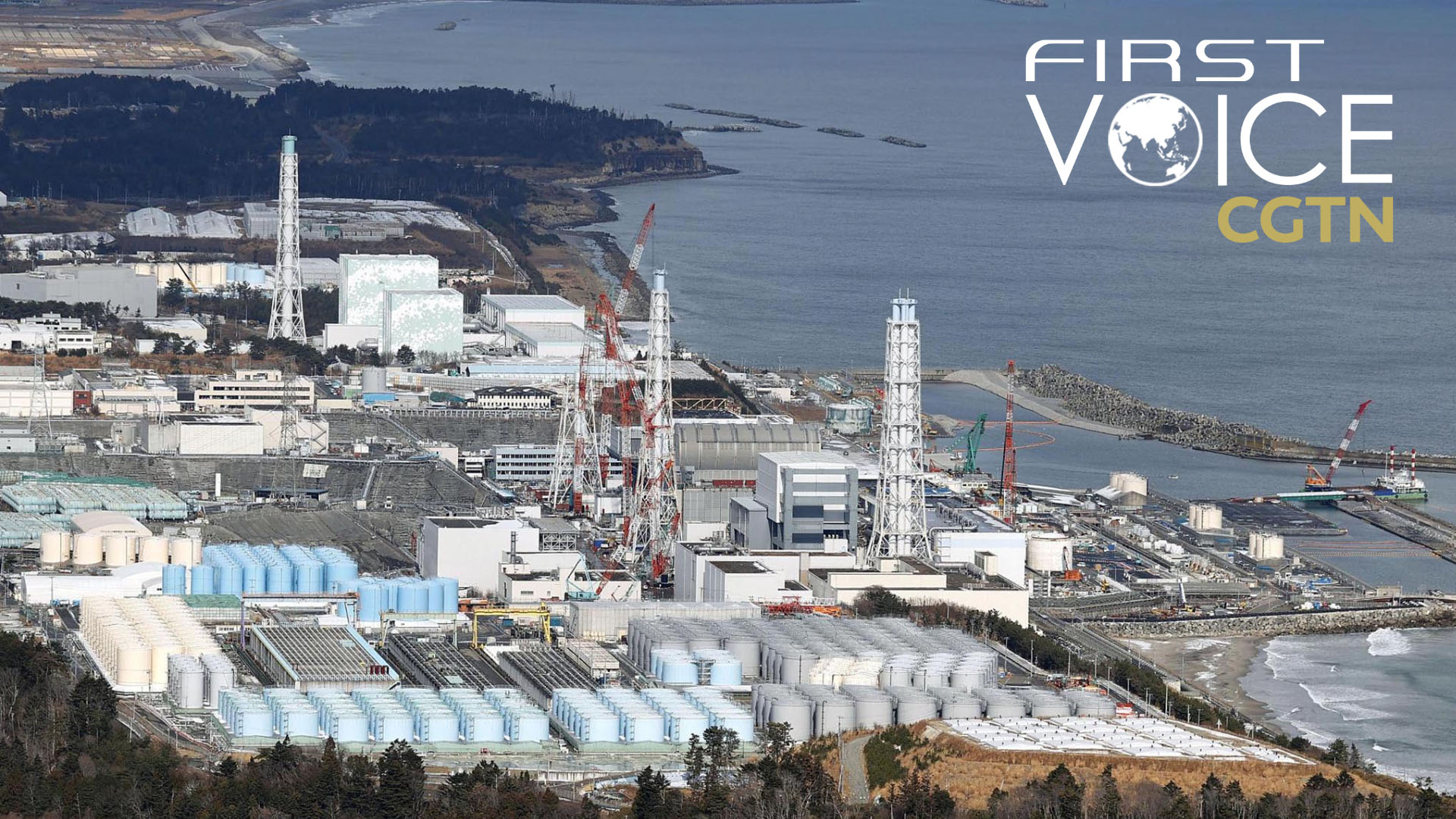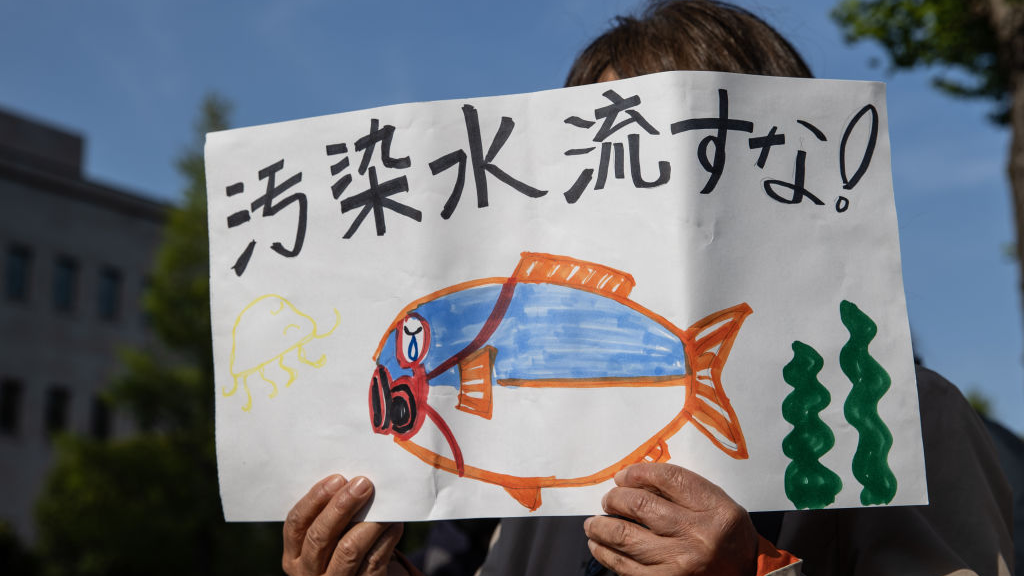
Editor's note: CGTN's First Voice provides instant commentary on breaking stories. The daily column clarifies emerging issues and better defines the news agenda, offering a Chinese perspective on the latest global events.
The government of Japan has confirmed its decision to dump over 1 million tonnes of radioactive contaminated water from the Fukushima Nuclear Power Disaster a decade earlier into the sea.
China and the Republic of Korea have expressed serious concern over the issue, as well as various environmental groups such as Greenpeace, fearing a destructive impact on their respective waters from the fallout. The U.S. Department of State, however, has offered Tokyo its full backing and stated the process has been "transparent."
This is a unilateral and irresponsible decision by Tokyo, made without the consultation of its neighbors or any prior warning that the move will impose adverse economic and environmental costs, capable of spanning the entire Pacific Ocean. Tokyo should be prepared in turn to foot the bill for cleaning up future damage to the ocean, the widespread destruction of maritime life and fishing industries, as well as any human-related consequences which may arise from it. This was a low hanging fruit response to an issue which cautions patience, caution and prudence. It is not the answer.
Ten years ago, a devastating earthquake struck Fukushima and accumulated in a nuclear disaster which was the world's worst since Chernobyl. The fallout would eventually claim up to 2,000 lives. The task of cleaning up and alleviating the damage has been persistently mismanaged by the Japanese government, running up costs of up to $200 billion yet failing to come up with a sustainable solution.
In responding to this disaster, Tokyo has failed to be accountable and transparent to the rest of the national community concerning its origins and the roadmap ahead in solving it. As Greenpeace activist Kazue Suzuki told the guardian: "The Japanese government has once again failed the people of Fukushima."
The International Atomic Energy Agency has long been critical of Japan's approach to the issue, citing poor regulations, weak oversight and conflicts of interest within the government, all of which led to what otherwise could have been a "preventable" disaster irrespective of the earthquake.

A woman holds a placard during a demonstration outside of Japanese prime minister's official residence on the decision to dispose radiation-contaminated water accumulated at the property of Fukushima Daiichi Nuclear Power Plant complex, in Tokyo, Japan, April 12, 2021. /Getty
A woman holds a placard during a demonstration outside of Japanese prime minister's official residence on the decision to dispose radiation-contaminated water accumulated at the property of Fukushima Daiichi Nuclear Power Plant complex, in Tokyo, Japan, April 12, 2021. /Getty
If China had been at the foot of such an event, it would have received widespread vilification and condemnation, especially in the mainstream media and by the United States. In doing so, Washington and its allies imply a double standard on what they describe as "transparency" and "cooperation" with respect to international disaster.
On this note, it must be made clear that Tokyo's actions are unacceptable as they fall short of the necessary international cooperation needed to ensure safe disposal. The Japanese government should have sought to establish a coordinated response to disposing the nuclear water in a sustainable, timely and appropriate manner along with other affected parties in the region who will suffer from this fallout, including the Republic of Korea, the DPRK and Russia, to name a few. Nuclear environmental issues are global issues, they are not the sole reserve of a single country to cover up and botch according to its national interest.
As ever, Japan commits egregious acts against its neighbors, both historically and in the contemporary era, and simply refuses to come to terms with the potential consequences, a position which has been persistently backed by the United States.
China remains otherwise committed to global environmental cooperation, multilateralism and an approach to regionalism in East Asia whereby countries can work together and pool common interests, or in other words a community with a shared future for mankind.
Japan's unilateral negligence will have lasting consequences. This region cannot be run as a zero-sum game whereby one nation is allowed to benefit at the expense of everyone else. Tokyo must reconsider this dangerous pathway at once and consider the well-being of all its neighbors.
(If you want to contribute and have specific expertise, please contact us at opinions@cgtn.com.)

